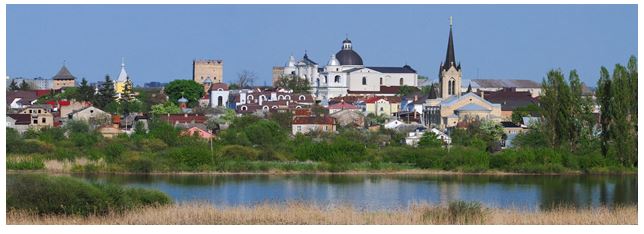Governmental programmes to support trans-national intercultural dialogue activities are concentrated mainly in three fields:
- special programmes for developing cross-frontier relations, e.g., “days of good neighbourhood” or “European days of good neighbourhood” among border towns or villages which are organised jointly in cooperation with local administrations (http://loda.gov.ua/news?id=29917) or joint European projects of cross-border partnership, for example, the Danube Transnational Programme (http://www.interreg-danube.eu/);
- the development of culture and information centres in foreign countries to present Ukrainian culture, as a main task of the future Ukrainian Institute; and
- support to specific groups: Crimean Tartars, Roma, etc. For example, the regular session of Uzhgorod (Transcarpathian region) city council approved the Programme for celebrating national and local holidays, historical events, significant and memorable dates and other commemorations for 2018–2020. For the first time, the city widely supported the celebrations for International Roma Day in April.
In February 2016, the state enterprise “Crimean House” was opened in Kyiv uniting in its space several organizations engaged in Crimean, especially, Crimean Tartar issues. As MP, Presidential Commissioner on Crimean Tartars issues, Mustafa Jemilev, noted: “Firstly, it would consolidate forces that didn’t recognize the occupation of Crimea. Secondly, it would give the opportunity to preserve and develop the Crimean culture which is at risk”.
There are different NGOs operating in the cultural sphere in Ukraine that are engaged in trans-national dialogue activities e.g. Arabesque Theatre Studio (Kharkiv), Development Centre “Democracy through Culture” (Kyiv), Centre for Cultural Management (Lviv), Congress of Cultural Activists (Kyiv), etc. Working actively with local authorities, sponsors, international foundations and, sometimes, with central agencies, these NGOs realise many projects based on trans-national collaboration.
Special attention should be paid to activities of the foundation IZOLYATSIA, a non-profit non-governmental platform for contemporary culture founded in 2010 on the site of a former insulation factory in Donetsk. On 9 June 2014, the site was seized by the militia of the self-proclaimed “Donetsk People’s Republic”. IZOLYATSIA has relocated to a shipyard in Kyiv and continues to present cultural projects and support socially active artists and creative producers in Kyiv, throughout Ukraine, and worldwide, as well as serving as a resource for international curators, scholars, artists and ambassadors. IZOLYATSIA is a platform for cultural initiatives. It is a multidisciplinary cultural project open to all genres of creative expression. It is a point of intersection for all those passionate about cultural and social change. The archive of artistic projects realized by IZOLYATSIA can be found here: https://izolyatsia.org/en/projects/.
Intercultural dialogue: actors, strategies, programmes
In April 2010, the Ministry of Culture and Development Centre “Democracy through Culture”, with assistance of the Council of Europe, prepared and published the Ukrainian version of the White Paper on Intercultural Dialogue “Living Together as Equals in Dignity”.
In June 2017, the Government of Ukraine adopted the Concept of the State Programme for Collaboration with Foreign Ukrainians for 2017–2020. The realization of the Programme gives the opportunity to affirm the positive image of Ukraine, provide European integration of Ukraine through deepening intercultural dialogue and interaction in the cultural and humanitarian sphere.
The All-Ukrainian Forum of national cultures, “We All Are Your Children, Ukraine”, was initiated in 1988. The Forum takes place once every two years within the framework of the artistic project “Ukraine is Open to the World” and is supported by the Board of National Societies of Ukraine and the Ministry of Culture of Ukraine. The purpose of this project is to promote cultures from different nations and nationalities living in Ukraine. The Forum displays the creative work of professional, folk and amateur artists, collectives and groups.
The following private actors operate successfully in the field of intercultural dialogue: Arabesque Theatre Studio (Kharkiv), Development Centre “Democracy through Culture” (Kyiv), Theatre Pechersk (Kyiv), Theatre “Drabyna” (Lviv), Art Centre “Dzyga” (Lviv), Centre for Cultural Management (Lviv), NGO “Art Travel”, IZOLYATSIA Foundation, the Ukrainian Humanitarian Development Foundation, Congress of Culture Activists (Kyiv),Youth organization STAN, Pinchuk Foundation, Youth organization “Youth urban initiative” and other organisations.
For example, in late July 2017, the First international children’s project International Village was held in the Carpathian Mountains with the support of the Scholarship programme “Tomorrow.UA” of the Pinchuk Foundation. The event was initiated and conducted by the Youth organization “Youth urban initiative”, co-organizers were Action-West-Ost and Olsztyńskie stowarzyszenie mniejszości niemieckiej in Olsztynie. The objective of the project was to build intercultural dialogue between EU and Ukrainian youth, support replaced children in Ukraine and integrate them into the European youth community, change stereotypes concerning the situation in the country, create a space for language learning and the development of European values.
Examples of Good Practice: Intercultural Center in Lutsk

One of the priority project ideas for local development of the town of Lutsk (Volyn’ region) was worked out within the frames of the EU/CoE COMUS project (see chapter 1.4.2).
It involves creating a modern intercultural centre (co-working space with an information Internet-platform) for constructive cultural and intellectual cooperation between the local community and representatives of Polish, Armenian, Czech, and Jewish cultures of the town of Lutsk. Since the Middle Ages, Lutsk was a political centre of the Volyn region and shaped as a multicultural town. Besides, Ukrainians, there Poles, Lithuanians, Armenians, Karaites, Jews, Czechs, and Germans living in the town. Descendants of various ethnic groups visit Lutsk and retell their experiences of the ‘ethnic’ history of Lutsk.
Associations of Poles, Armenians, and Czechs are active today in Lutsk. Not so numerous but also present is the community of Germans Lutherans. This is why the creation of the intercultural centre is worthwhile as a project idea directed at transformation of the library space into a Centre of Intercultural Dialogue.

Comments are closed.